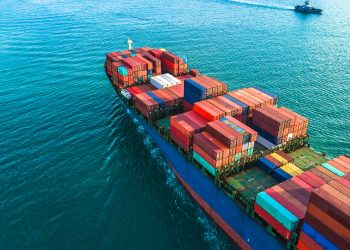Canada leads the world in creating such measures, speakers say
 The global container shipping industry lags behind many other industries in establishing a set of key performance indicators to measure elements that are critical to shipping customers.
The global container shipping industry lags behind many other industries in establishing a set of key performance indicators to measure elements that are critical to shipping customers.
But Canada leads the world in setting transportation measures, such as on-time reliability, terminal productivity, and dwell times, according to speakers on a panel during the opening day of The Journal of Commerce’s 6th Annual Canada Maritime Conference in Montreal.
The biggest problem in setting KPIs for global supply chains is the lack of common performance standards and common measurements of performance, said Kuba Szymanski, secretary general of InterManager, which is investing $10 million in developing a KIP grid for shipowners.
“Shippers are more concerned about port performance than costs,” said Mary Brooks of Dalhousie University. “Ports talk about their productivity but it’s a bit like kids in a playground, saying ‘I’m better than you are,’ because there are no common measurements of productivity.” She said ports’ performance indicators need to be vetted by third-party sources to validate their claims or shippers will not accept them.
The KPI panelists praised the newly announced Daily Maersk service, which will set up a daily Asia-Europe container shipping service with a common cutoff time at four Asian ports and guarantee on-time delivery to four ports in Northern Europe.
“Daily Maersk will pull up the reliability performance of other carriers,” Szymanski said. He said there were probably other carriers at the two-day conference that are planning to offer similar performance guarantees.
Earlier in the day, Soren Castbak, senior director of the trans-Atlantic trades for Maersk Line, said the Danish carrier will not charge a rate premium for the Daily Maersk service when it launches from China on Oct. 24, but may decide to do so if the service proves popular with shippers.
Castbak said Maersk had no plans to extend a similar service into on other trade lanes in the immediate future, but would wait to see how it works on the Asia-Europe trade. At the same time Maersk has moved to improve the reliability on other trade lanes.
On its TA-4 service between Northern Europe and Montreal, for example, it has boosted the on-time performance from 80 percent to 98 percent by adding a fourth ship to the three-vessel string, he said.
Maersk Line is trying to come to grips with the 30 percent of containers for which shippers have booked cargo space, but which fail to show up at the port of embarkation. Maersk has been testing the idea of charging a penalty for no-show containers, but has not decided whether to launch a global penalty program, Castbak said.
Source: Journal of Commerce





























































